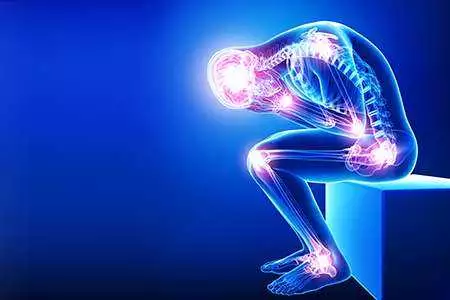The Korsakov syndrome is a typically rapid-onset set of neurological and psychiatric symptoms dominated by memory impairment, mainly in remembering new information.
Recall of already recorded information and relived events is also a problem.
Causes of Wernicke-Korsakov syndrome
The syndrome arises against a background of vitamin B1 (thiamine) deficiency. Its daily requirement is approximately 1.5-3 mg. Usually insufficient amounts of this vitamin in the body arise in alcoholism, chronic vomiting, gastrointestinal diseases that reduce nutrient absorption, prolonged parenteral nutrition, anorexia nervosa and AIDS.
Symptoms
The neurological symptoms are called Wernicke's encephalopathy, while the psychiatric symptoms are called Korsakov's amnestic syndrome.
Neurological symptoms include:
- eye movement abnormalities,
- pupil irregularity,
- lack of reaction to light,
- problems with walking
- awkwardness of movement.
In addition, they may be accompanied by symptoms of peripheral nerve damage, skin lesions, redness of mucous membranes and liver dysfunction.
An abstinence syndrome develops in patients in whom the disease is caused by excessive alcohol consumption.

photo: pantherstock
Korsakov's amnestic syndrome, as a psychiatric component, is characterised by impaired fresh memory and problems with recalling past events. At the beginning of the illness, confabulations occur as compensation for the memory defect. The patients' mood is often elevated.
In addition to the characteristic memory impairment, problems with spatial perception and abstract thinking are also observed. Consciousness, comprehension and execution of instructions are fully preserved, except in cases where total oblivion has occurred.









